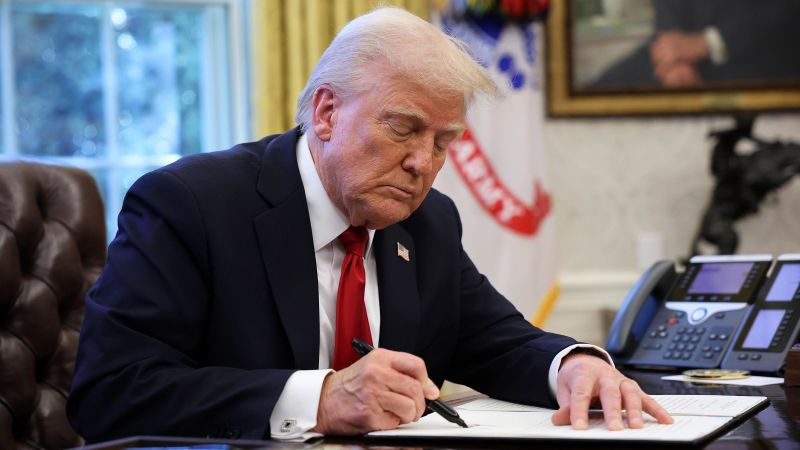On Wednesday, President Donald Trump is poised to sign a groundbreaking executive order aimed at reforming the college accreditation landscape in the United States. According to a White House official, this strategic initiative highlights Trump’s ongoing effort to assert control over higher education institutions across the nation. This marks yet another step in a series of controversial actions that have characterized Trump’s administration’s approach to educational governance.
The forthcoming executive order, as initially reported by the Wall Street Journal, has far-reaching implications for how the federal government determines which colleges and universities are eligible to receive federal student loans and Pell Grants. These grants represent a substantial source of funding for numerous educational establishments, making the government’s accreditation process a pivotal element in the financial viability of many institutions. The order signifies a potential shift in power dynamics, allowing the administration to influence which institutions can access billions of dollars crucial for maintaining educational programs and services.
Central to the executive order is an instruction for the Secretary of Education to hold higher education accreditors responsible for their performances. The order empowers the Secretary to take actions such as denial, monitoring, suspension, or even termination of accreditors for inadequate performance or any violations of the federal Civil Rights Act. This move aims to enhance accountability in the accreditation process, ensuring that institutions adhere closely to the legal and ethical standards set forth by federal law.
In addition to addressing the accreditation process, the executive order also mandates a thorough investigation into unlawful discrimination practices within American higher education institutions. This effort includes a specific focus on law schools and medical schools, underscoring the administration’s commitment to address equity issues in various sectors of higher education. The order tasks both the Attorney General and the Secretary of Education with the investigation and termination of discriminatory practices, reflecting a broader commitment to civil rights within the educational context.
The push for this executive order was led by Trump’s Domestic Policy Council, reflecting a coordinated effort to further Trump’s vision for higher education. Prominent figures in the initiative include Deputy Chief of Staff Stephen Miller and other allies within the administration who are dedicated to advancing Trump’s agenda. The influence of the Domestic Policy Council is indicative of the administration’s strategic approach to navigating the complexities of educational policy and governance.
This new executive order comes in the wake of a recent tense standoff between the Trump administration and Harvard University, resulting in a drastic $2.2 billion funding freeze. The conflict over funding has sparked significant discussions surrounding issues of academic freedom, federal financial support, and the extent of oversight the government should have over educational institutions. The order appears to be a continuation of the administration’s confrontational stance toward colleges that it perceives as misaligned with its political and educational philosophies.
Education Secretary Linda McMahon is expected to be present in the Oval Office during the order signing at 5 p.m., as confirmed by White House Press Secretary Karoline Leavitt. McMahon’s involvement in the event underscores the administration’s emphasis on education reform as a fundamental aspect of Trump’s overall policy goals.
In summary, this executive order represents a significant moment in the ongoing discourse regarding higher education in America. By aiming to reshape the accreditation system and tackle discrimination within educational institutions, the administration seeks to change the landscape of higher education funding and governance. As these developments unfold, the repercussions on colleges and universities across the nation will likely be profound, setting the stage for further debates on the future of education in America.



